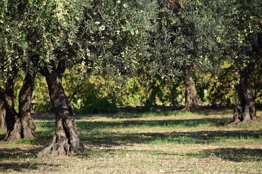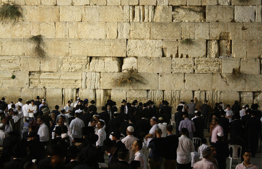The shemitah year and its educational values and messages

What are the educational values that the Shemitah year teaches us, with regard to: the land, to other people, to spirituality, to one's correct relationship to fruits as well as the preferred connection between the farmers and the rest of the nation
The Shabbat of the Land, and the Shabbat for Hashem – the correct approach toward the human being, to the land, and to its fruits
The word Shemitah comes from the root "shamat" שמט, which means to throw away, to let go, l’hafkir (abandon). Every seven years, the entire year is called the “Seventh Year” in repetitive cycles of seven years since Creation. This Shemitah concept applies to land and also to monies (the release of personal debts, or shemitat chovot). However, in this article I will deal with the release of lands alone.
The mitzva of Shemitah, as it is expressed in the Torah, falls mainly on the farmer:
But in the seventh year, the land shall have a sabbath of complete rest, a sabbath of the Lord; you shall not sow your field or prune your vineyard.
You shall not reap the aftergrowth of your harvest or gather the grapes of your untrimmed vines; it shall be a year of complete rest for the land.[1]
Shemitah is viewed as one of the greatest and most difficult commandments in the Torah. The farmers, who must avoid cultivating their fields for an entire year, are called heroes, as it says: ”'mighty men, who do as I tell them' (psalms 103,20) – this refers to those who observe Shevi’it (the seventh Shemitah year) ”. [2]
The more difficult it is to observe this commandment, the more it contributes to our lives. Those who observe Shemitah according to the halacha, find that it develops important religious, ethical, social and national values in them. It awakens in us a special relationship toward the soil and earth as well as to the human being, the nation and our land.
Relationship to the soil and land: "So that you shall know that the land is mine”[3]
The Shemitah commandment was never intended to preserve the soil and land or heal it, as some try to explain. There were, even in the past, other methods to reclaim the land, just as efficient as resting the land for one year out of every seven.[4] The real reason for the mitzvah of Shemitah is expressly written in the Torah: “The land shall observe a shabbath for hashem." [5].
An analogy to this is that of the Shabbat: Just as the Shabbat testifies that the world was created by God in six days, and is the reason for life, for significance and purpose – so, too, release of our land tracts is testimony to the fact that the world is not primeval, but was created by God. We do not own the land, because “The earth is the Lord’s and all that it holds, the world and its inhabitants.”[6] God is the Lord of the entire world in general, and of Eretz Yisrael in specific. The Shemitah commandment pertains only in Eretz Yisrael. The Shemitah year come to remind us that "[But the land must not be sold beyond reclaim, for the land is Mine;] you are but strangers resident with me".[7] We are allowed to live in Eretz Yisrael under this condition that we know that we do not own the land and its products.
The relationship to the human being: “that the poor of thy people may eat”[8]
In addition to the issue of faith with regard to making fruits hefker in the Shemitah year, there is also a built-in issue of social justice or equality. In the time of the Mishna, a takana was taken to ensure social and economic equality in the Shemitah year. This takana was called “Otzer Beit Din,” and described thusly in the Tosefta:[9]
“At first there were Beit Din messengers who waited at the entrances to the villages. Anyone who brought in fruit – they would take it away from him, and give him food for three meals, and the rest would be brought to the town’s storage."
During the Shemitah year, this public institution supervised the work involved in maintaining the plants' growth; on the harvest of the crops; on storing the fruits in the public storehouse and the distribution every week of produce to those who needed.
The Otzar Beit Din ordinance is being renewed in our own days. More and more agricultural yishuvim have joined this arrangement: they hand over the running of their fields to the Otzar Beit Din as well as the distribution of their produce to the consumers, at cost.[10] Rav Zvi Hirsch Kalischer, one of the early Zionists, claimed that this social construct serves to minimize class wars in society:
“We also learned from this that wealthy people should not patronize the poor. The Torah tells us that in the seventh year, everyone is equal – the wealthy and the poor. All are permitted to eat of the produce in the gardens and fields, until they are satisfied." [11]
The Shemitah commandments imbue us with midot tovot (proper virtues) of grace and benevolence toward others. The rules forbid secret storing of food; instead, the food is hefker to all. This set-up also trained the public to keep an eye on needy families in non-Shemitah years as well. “And my poor people will eat with you.”[12]
The recognition that God has ultimate ownership over the land, and the willingness of people for the expropriation of private ownership of the land, lead us to a more just social perception. This is not atheistic socialism, but real equality of human beings created in God’s image. It is a just society with equality, in which the fruits are hefker to all with no differences between rich and poor, between employer and employee. Such a society is infused with new, even revolutionary content that may change the nature of the society in regular years as well.
Immersed in Torah and spirituality: “Shabbat for Hashem”[13]
The commentators learn about the farmers’ (temporary) time-out from agricultural work during the Shemitah year – from the words, “Shabbat l’Hashem.” R. Ovadia Sforno explains: “May the year of resting from agricultural work, be used for worship of God.” [14] This is similar to Shabbat, when the laborer sets his daily work aside to address Torah learning and spirituality: So, too, in the seventh year there is freedom from physical work, not to encourage idleness but, as in the words of Rav Kalisher, ‘When the yoke of work will be discharged, one will engage in Torah and wisdom.’ The work of the farmer in tilling the earth can empty him of all spiritual content. Therefore he was gifted with the Shemitah year, to raise his spiritual-religious world.
In his introduction to “Shabbat HaAretz,” Rav Kook summaries all the concepts above, with the following statement:
“Just as the Shabbat has a special effect on every individual, so does Shemitah on the nation in general. This nation has a unique need – that the Godly, eternal radiance which is planted inside them – this Godly illumination will be revealed to all in its splendor: That their regular week-day lives full of hard work and worry will not darken its light, so as to reveal the purity of the [nation’s] soul, as a whole.” [15]
According to Rav Kook, we tend to be busy in our daily lives with competition and possessiveness and these elements tend to dim the Godly light that is found in the national soul. It is Shemitah that assists the revelation of the Godly light of the nation’s soul, and its transcendence.
Holiness of the fruits: “For eating“
In the halachot of Shemitah, the Torah repeats and emphasizes that: “And the sabbath-produce of the land shall be for food for you... shall all the increase thereof be for food.” [16] From here our Sages learned that the Shvi’it fruits are holy, and should be eaten in their natural form.
The term “holiness” receives special significance here: we are not commanded to set aside the fruit and refrain from eating it; the contrary is true. “Food for you” – not as a loss, not as merchandise to sell, not for medical needs nor industrial purposes (except as food), nor any unconventional use.[17] The fruits must be consumed fully; any surplus must not be thrown into the garbage or destroyed, or assigned a secondary use.
Proper manners dictate that someone who is hosted by another, must treat the food he or she receives from the host, with respect. The same principle applies to Shemitah food. Unfortunately, we have become accustomed to waste food in our prosperous world; thus the Shemitah year brings us back to sanity. The Shemitah returns us to a more respectful, serious, and cautious approach toward Hashem’s gifts to us in this world. We must treat the fruits of the trees and the yield from the earth with respect, and holiness. Thus we will accustom ourselves to value that which we receive as gifts from the One who “feeds the entire world with His goodness.”[18]
The heter mechirah: “If your kinsman is in straits and has to sell part of his holding"[19]
When dealing with the mitzvot of Shemitah, we cannot ignore the “heter mechira” that was offered as a solution to the Jewish farmers more than a hundred years ago, at the very beginning of the hityashvut (settlement) in Israel. The heter was originally offered as a hora’at sha’ah (temporary order), in which the Jewish farmers could observe the Shemitah by selling land-tracts in Eretz Yisrael to a non-Jew for one year, until such time when Hashem will make it possible for us to waive this hora’at sha’ah. And, in truth, the situation has much improved over time and today we are able, with regard to some of the crops, to observe the Shemitah year using other Halachik “tools” that do not require the hafka’a (annulment) of the holiness of the soil and the fruits. In order to expand this process (of not using heter mechirah), it is important to increase the cooperation between the country’s urban and agricultural sectors. This, too, is one of the important principles of Shemitah: mutual responsibility. The farmer sees himself as serving the Israeli consumers, while the consumers accept their responsibilities toward strengthening the hityashvut (Jewish settlement) throughout the country. Both of these sectors accept their mutual commitments to the land of Israel, which carries sacred and holy values.
There is no other nation or language that expresses the closeness of Am Yisrael to its land. Even during the long years of exile (Galut), the Jewish people maintained its emotional connection to their land. And now that we have returned to our land, now that the deserts are blooming once again – we must strengthen our ties to the land, from which we receive our power and aspirations: “There shall be no needy among you – since the Lord your God will bless you in the land that the Lord your God is giving you as a hereditary portion.”[20]
[1] Vayikra 25: 4-5.
[2] Vayikra Rabah, Parsha A, no. 1.
[3] Sanhedrin 39a.
[4] See Baba Batra 31a
[5] Vayikra 25:2.
[6] Tehillim 24:1.
[7] Vayikra 25:23
[8] Shemot 23:11.
[9] Shevi’it 8:1
[10] Actually, the fees paid by the consumers for fruits every year, is very close to the cost price, if not lower. (So the price of Otzar Beit Din fruit will be similar to the regular price-M.B.).
[11] Sifrei Habrit, Parshat Be’har
[12] Shemot 23:11
[13] Vayikra 25:2
[14]. Vayikra 25:2 s.v. Shabbat
[15] Introduction to Shabbat Ha'aretz.
[16] Vayikra 25:6-7.
[17] See Rambam Hilchot Shemitah, chap. 5-6.
[18] From Birkat HaMazon.
[19] Vayikra 25:25
[20] Devarim 15:4




